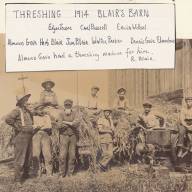At its Monday, January 13, meeting, the Warren Planning Commission caught up on the status of two important documents on town officials’ plates – the town’s updated Land Use and Development Regulations (LUDRs) and a draft Short Term Rental ordinance.
The town is hoping to finalize the updated LUDRs within six weeks or so, Warren zoning administrator Ruth Robbins said. The planning commission began the process of updating the document – a set of rules established by local governments to control how land can be used and developed within a community — in the summer of 2019. Both the planning commission and select board have been heavily involved in the rewrite process.
Planning commission chair Dan Raddock said he was frustrated with the long timeline. Commissioner Jim Sanford agreed: “It’s like something out of Franz Kafka,” he said.
OFF OUR PLATES
Raddock, an attorney by day, said he would assist the town with legal counsel if the currently contracted attorney could not finish the work by early March. “I want this off of our plates before Town Meeting,” he said.
Commissioners also briefed each other about the status of an ordinance that would require Short Term Rental owners to register properties with the town for an annual fee of $200. Robbins said the ordinance is currently being looked over by attorneys at the Vermont League of Cities and Towns (VLCT). Then, it will be publicly warned before the select board votes on it.
The brief update launched commissioners into a broader reflection of the ordinance and its implications – particularly about the relationship of data and policy.
COLLECT DATA
The goal of the STR registry is to collect data about properties to better understand whether and to what extent the growing STR market has whittled down the long-term housing stock in Warren, among other questions about STR ownership. Depending on what the data shows, the town could enact policies in response – following a two-year period of data collection.
There has been a difference of opinion among town officials regarding whether the town should hold off on enacting policies regarding the STR market until after data is studied, or use the ordinance as a means of taking action sooner.
Some have pushed for quasi-policy changes built into the ordinance – like requiring a higher fee for STR owners operating properties out of state, or charging an annual registration fee that would allow the town to not only reimburse the cost of software that houses STR data, but also put a portion of fees into an affordable housing trust fund.
“Personally, I think with 400-600 STR units in Warren, there is enough capacity to create a housing trust fund if we charge registration fees like many other towns are charging,” Raddock told The Valley Reporter by email. He said the town could use the fund to subsidize the construction of accessory dwelling units, with a stipulation that owners must rent units out at an affordable rate for a certain amount of time.
DIFFERENCE OF OPINION
The state offers similar grants under the Vermont Housing Improvement Program.
For Raddock, the difference of opinion among town officials boils down to the question of “do we have enough data to say we have a problem?” To start enacting policy in small ways, in the immediate, I “personally feel like we have enough data,” he said.
Regardless, down the road, certain data will undoubtedly be important for the town to have, planning commissioner Macon Phillips said – like a breakdown of different STR ownership models and types.
“A lot of people came to us saying that Airbnb is critical supplemental income and we need to hold space for that,” he said. On the other hand, Phillips pointed to individuals and companies buying up investment properties from afar. “We need to understand what that divide is,” Phillips commissioners on Monday night.
Some of the latest communities to see STR policy changes in their towns include Queensbury, New York – where, this week, town officials revised the length-of-stay limitation on STRs to a minimum of four nights in order to curb weekend stays that may lead to disruptive behavior in neighborhoods.
Last month, a town in Martha’s Vineyard started looking at a bylaw that would cap the number of days owners can rent their properties on a short-term basis, to 95 days per year.
Regarding policy decisions in Warren, Robbins told commissioners that “sometimes, you have to take baby steps.”













